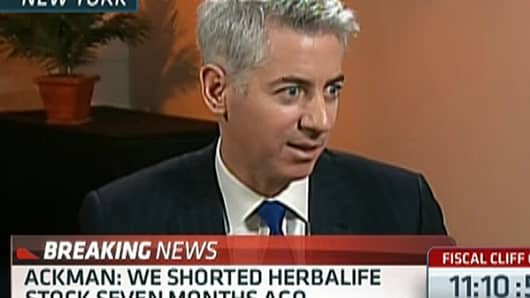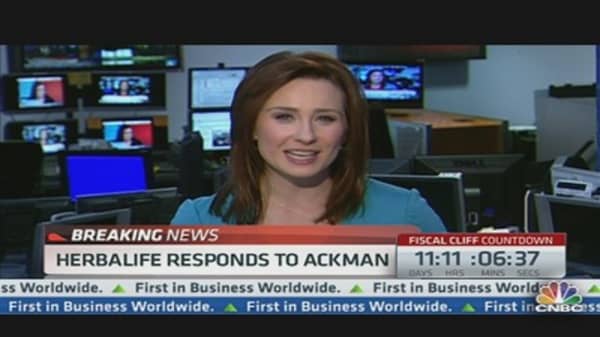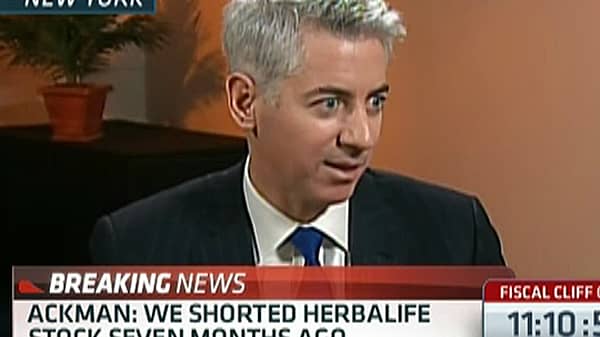I have got some bad news for Herbalife CEO Michael Johnson.
This news is hardly the worst Johnson has gotten lately.
Surely it was far worse for him to learn that Pershing Square's Bill Ackman was going to make an epic presentation accusing Herbalife of being "the best managed pyramid scheme in the history of the world."
And also it was worse to see that the market was reacting to the Ackman news by rapidly reducing the price for shares in Herbalife.
Here's my bad news: there is no way the Securities and Exchange Commission is going to pursue Ackman on charges of market manipulation. Because what Ackman is doing just is not illegal market manipulation. In fact, it's just about the opposite of market manipulation.






